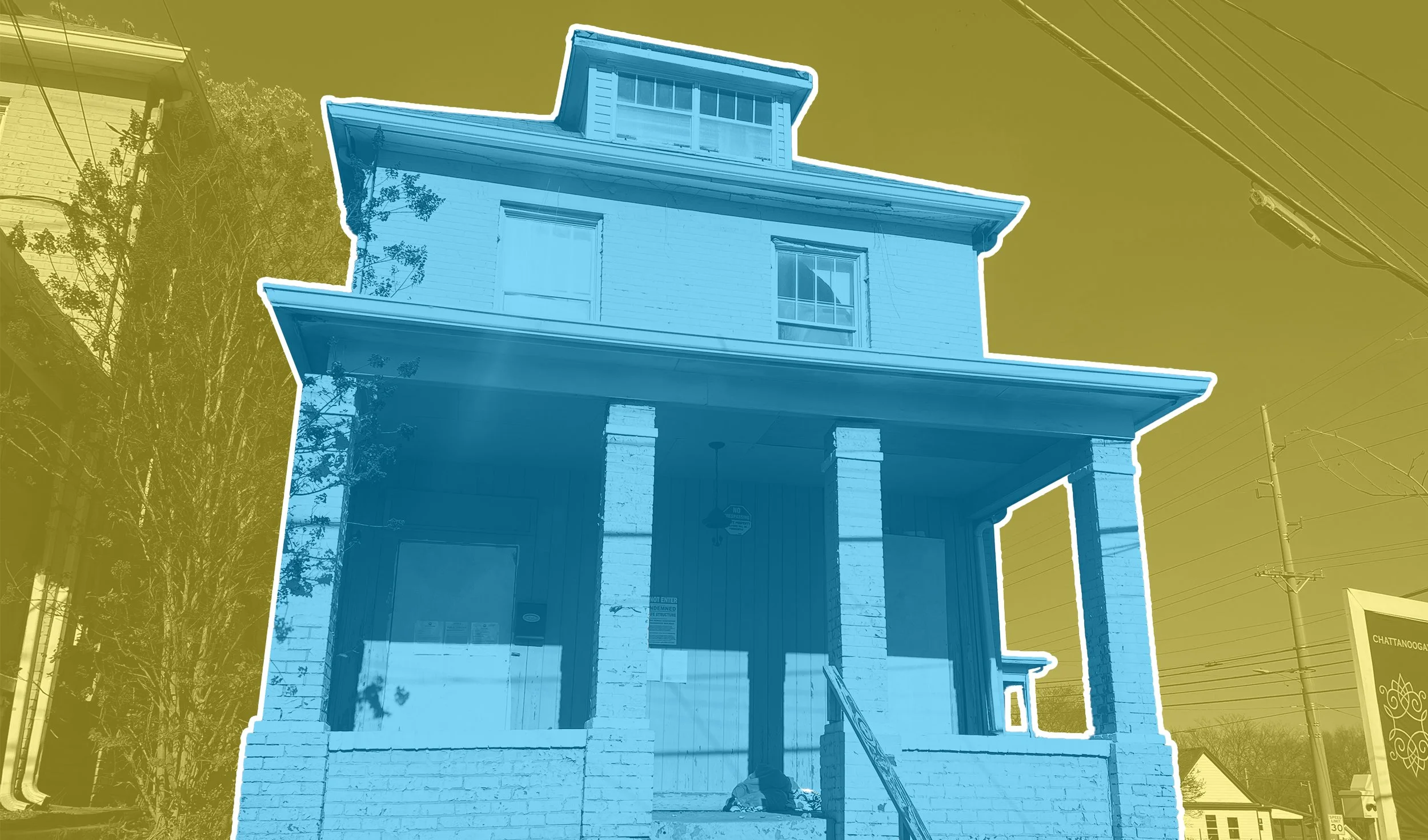Q: Do condemned houses have to be torn down?
Graphic by Ian-Alijah Bey
Vacant homes and buildings aren’t uncommon in Chattanooga. Some are between tenants, some are waiting for redevelopment, and some are simply abandoned. But when a vacant building becomes a safety risk, the city takes steps to keep people out of it — they condemn it.
“All condemnation means is that the house is not safe to live in its current condition,” said Donna Casteel of Chattanooga’s code enforcement division.
Code officials find unsafe structures through regular inspections, neighbor complaints, and alerts from emergency responders. There are around 200-300 structures marked with a “condemned” placard in Chattanooga, Casteel said, and it’s rare for a building with regular occupants to get condemned.
Investment properties that are never repurposed and homes acquired through an inheritance are a couple of examples of the types of buildings that may sit vacant and deteriorate. Severe structural damage from a fallen tree commonly triggers condemnation, too.
City code details the process for property owners to get a building recertified for occupancy, which Casteel said happens more often than not following condemnation.
Repairs are supposed to begin within 30 days of condemnation, but as many Chattanoogans know (think of that boarded-up house you pass on your commute), that doesn’t always happen.
There are a few ways code enforcement can prompt property owners to take action, including citing them to city court and bringing them before an administrative hearing officer who can levy stiff fines for noncompliance.
As a last resort, code officials can refer condemned structures to what’s called a “demolition hearing.” There, a judge may order the city to demolish it.
Deciding which buildings to remove comes down to public safety and available resources, Casteel said. A boarded-up building — an extra precaution to prevent people from using it as a shelter — might stay up for years if it doesn’t pose a risk to people and other structures.
“We try to take the more dangerous houses first for demolition,” she said. “We have a limited budget.”
Take the homes at 1031 and 1033 E. MLK Blvd, both condemned and boarded. According to Chattanooga City Court records, the property owner has received dozens of citations regarding structural maintenance going back nearly a decade.
Casteel said the city does not necessarily want to demolish the homes, which date back to 1920. But with damage ranging from rotted floors to buckling walls and a host of neighbor complaints, demolition may be the recommendation. Both are on the docket for the next demolition hearing on Dec. 13.
You can go online or call 311 to report a structure for inspection. Citations regarding litter, overgrowth, and structural violations are available here. Tip: Search using the owner’s first and last names or a citation number to get the most accurate results.
— Email William Newlin at william@chattamatters.com

